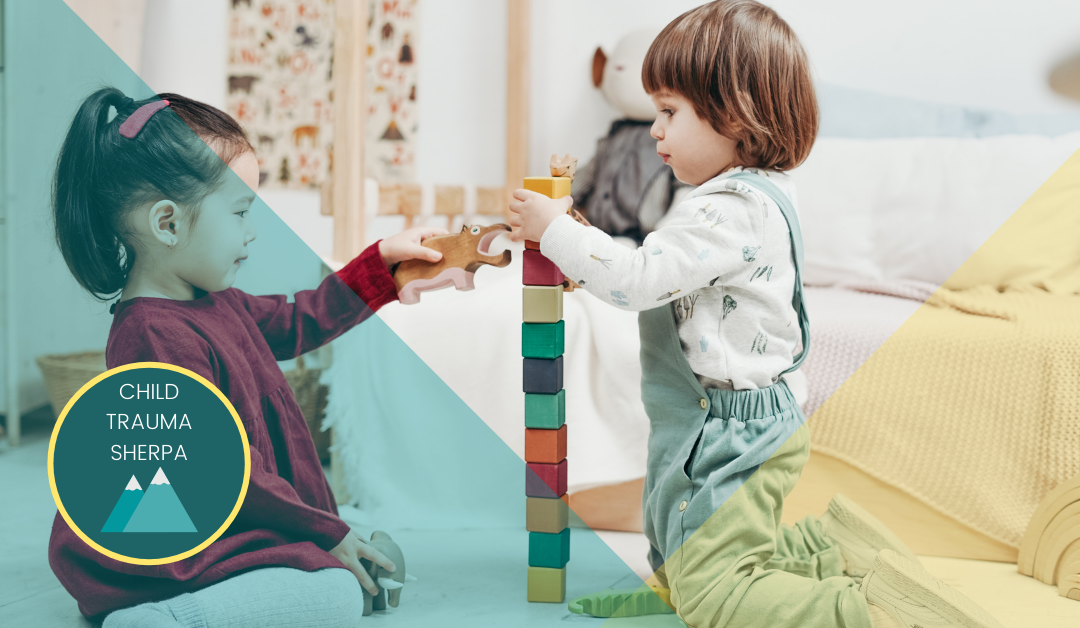And How You Can Help Your Child with Trauma Live a Happier, More Fulfilling Life
Trauma from physical and emotional abuse during childhood can have lasting effects on mental health and how you cope with future stress. The resulting negative effects alter a person’s mental state. It can even lead to increased drug abuse that begins at a much younger age.
But exactly how does that trauma change our mental health? And how can you help your child overcome those negative effects and heal? In this article, we’ll go into the how, plus what you can do to help your adopted child heal from trauma and live a happier and more fulfilling life.
How Trauma Affects the Brain
When we experience a stressful or negative event, our brain signals to the body to go into fight or flight mode. The perception of threat activates the sympathetic nervous system and triggers an acute stress response that prepares the body to fight or flee, such as providing more oxygen to the muscles that help you fight or flee.
However, when we are repeatedly exposed to adverse childhood experiences, or ACEs, this puts us into fight or flight mode constantly, and some children may always experience a heightened fight or flight response. This not only can lead to physical health issues down the road, but also has a negative impact on brain development. This repeated negative impact on the brain leads to a real brain injury.
Cause and Effect
Think of a soldier who has served multiple tours of duty and has seen many friends die. They often come home and are diagnosed with PTSD (post-traumatic stress disorder). The same happens to children who experience repeated trauma.
Children with trauma may experience or be diagnosed with:
- Depression
- Anxiety
- Fear or phobias
- Eating disorders or changes in eating habits
- Self-harming behaviors
- Increased focus on death
- Anger or aggression
- PTSD
- Sleeping issues or disorders
- Difficulty concentrating
- Low self-image
- Loss of or no interest in hobbies and activities
- Alienation
- Risky behaviors such as drug or alcohol abuse or sexual promiscuity
How You Can Help Your Child Heal
Children are resilient and so is the brain! Our brains are constantly healing and growing through age 25, which means that you can help your child heal from their past traumas and live a happier, more fulfilling life. Here are a few ways that you can begin to help your child heal.
Counseling: Those who have experienced trauma often internalize blame and guilt, which can lead to depression and low self-esteem. Working with a trauma-informed counselor can help your child learn to allocate blame as well as develop the skills to deal with complicated emotions.
Cognitive Behavior Therapy (CBT): ACEs can lead to children developing negative behavior or emotional responses in order to cope with their trauma. CBT is an evidence-based approach to unlearning these negative responses and helps your child learn healthier ways to deal with their trauma.
Meditation: Mindfulness meditation provides the opportunity to increase present-moment awareness, rather than constantly dwelling on the past. Meditation may also help to increase self-compassion and improve an individual’s ability to self-regulate (i.e. keep one’s emotions in check).
Medication: In some cases, a medical professional may recommend medications to help cope with the effects of childhood trauma. For example, they may prescribe anti-anxiety medication or antidepressants.
Support System: Helping your adopted child overcome the effects of childhood trauma will take an entire team of individuals from counselors and doctors, to teachers and religious leaders, and of course, family and friends. Your entire team will also need to be on the same page when it comes to working with your child on healing, otherwise you will see little to no progress.
Unconditional Love and Support: The biggest and best thing you can do for your child with trauma is to provide unconditional love and support in a stable and consistent environment. By providing a safe place that is predictable, you’ll be able to help reduce new stressors in your child’s life so they can focus on healing from the past.


